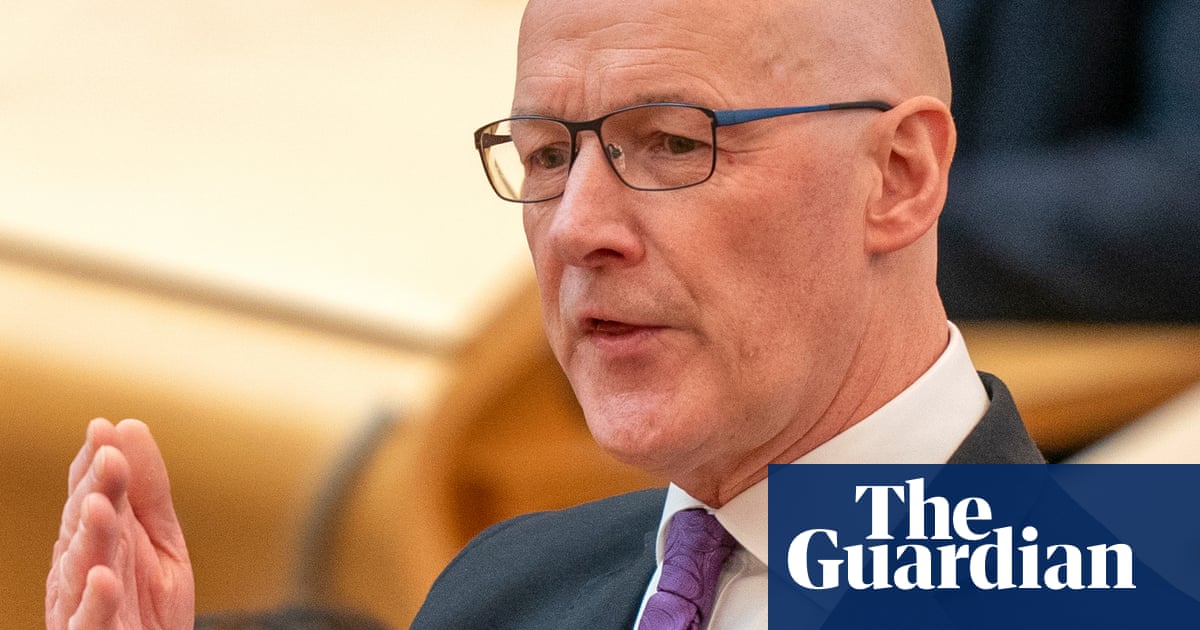John Swinney has pledged that Scotland will be the only part of the UK guaranteeing to tackle the cost of living crisis as he heaped pressure on his Labour rivals.
The first minister said his government had repeatedly boosted the incomes of the worst off and was successfully tackling child poverty, as he unveiled new policies designed to boost the Scottish National party’s (SNP) re-election hopes next year.
He said peak rail fares will again be abolished on all domestic Scottish rail travel from September this year – apolicy his government had scrapped eight months ago, claiming it failed to boost train journeys.
Swinney also pledged to increase the number of GP appointments for high risk diseases by 100,000 this year. That is a fraction of the total number each year, but he claimed it added to a suite of measures that would cut soaring waiting lists.
He said that along with the Scottish government’s free tuition fees and free prescriptions, the UK’s lowest council tax and water bills, free bus travel for young and elderly people, and the Scottish child payments and free school meals, the SNP had madeScotlandthe fairest place to live in the UK.
“This is my cost-of-living guarantee. A package that year-on-year delivers savings for the people of Scotland, a package that exists nowhere else in the UK,” he said.
However, opposition leaders, trade union leaders and campaign groups such as Oxfam attacked his programme for government statement for being very light on new policies.
He only announced five new pieces of legislation, three of which were minor, and spent much of his speech summarising longstanding policies, many of which the SNP is promoting in its campaign for next month’s Hamilton, Larkhall and Stonehouse Scottish parliament byelection.
Jamie Livingston, the head of Oxfam Scotland, said it was “too quiet on inequality, too soft on polluters and too slow on change: Scottish ministers are once again treading water while the storms of poverty, inequality and the climate crisis rage”.
The political focus of his statement became clear when Swinney clashed withAnas Sarwar, the Scottish Labour leader, who is struggling to reverse a steep slump in his party’s fortunes since it seized 37 Westminster seats in the general election.
Sarwar complimented Swinney on stealing severalLabourproposals but said overall his statement failed to meet the challenges of falling school attainment, of government waste, record child homelessness and record waiting lists.
“The truth is they have no plan, because after nearly two decades in government, if the SNP had a good idea, they would have delivered it by now,” Sarwar said. “John Swinney has been at the heart of government for nearly two decades. So how can the man who broke it now be the one to pretend he can fix it?”
Swinney said Sarwar had ignored Scotland’s far better record on council housebuilding than the UK, improved attainment in literacy and numeracy and record health spending this year.
He contrasted Sarwar’s muted criticisms of Keir Starmer’s tough spending decisions and welfare cuts for pensioners with theopen criticism of Starmer’s policies by Eluned Morgan, the Labour first minister of Wales, on Tuesday.
“The people of Scotland will be able to look at the contrast between an SNP government that is delivering for the people of Scotland and a Labour government that is selling out the poor and the disadvantaged and penalising pensioners. I think they will choose the SNP,” Swinney said.
